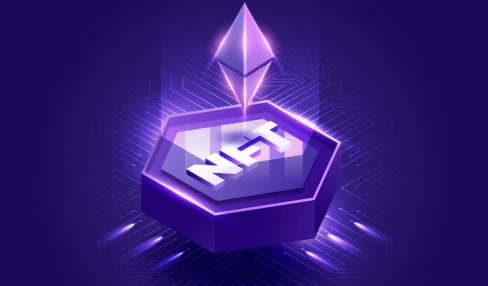What Is A Hard Money Loan
02 May 2025
5 Mins Read

A hard money loan is a type of financial solution in which a borrower provides a physical property as collateral in exchange for the funds.
The private investor typically provides a short term of roughly no more than five years, with the primary loan amount plus interest paid in that time frame.
The interest rates are higher for hard money lending than those of a traditional property loan, based on the higher risk involved and the shorter term. These types of loans won’t be available with a traditional banking institution.
When a traditional lender denies a loan based on credit or debt-to-income ratio, the private investor might grant it.
Their criteria are based on the property value being acquired as opposed to creditworthiness. If you can’t repay the debt, the private investor will recoup the funds by selling the collateral.
Understanding Hard Money Loans
Private lending is often secured for real estate or property transactions, as this serves as collateral for the loans. In some cases, however, lenders approve of other physical assets to back the loans.
The draw for this lending is that they serve as a financial solution when traditional financing is inaccessible or when funds are needed quickly. Visit – What Is a Hard Money Loan and How Does It Work? – to learn details on private lending. Typically, the loans are used in the following situations:
- In a fix-and-flip situation, where an individual or group buys a house to fix up and resell quickly for a profit
- When a borrower has poor credit, private investors look at the property value more so than creditworthiness
- For those who want to close on a property quickly, loan funds are available considerably faster than traditional lending
- Borrowers use these loans as a bridge when selling one property to buy another. It enables them to act fast without being hindered by the traditional loan processes.
- Time is of the essence in competitive markets when properties go into foreclosure. Investors can move quickly with private lending, often winning bids against those depending on slower financing methods.
Hard Money Lending Advantages

These private lending options have gained favor, particularly where traditional financing falls short. They’re a go-to financial solution for investors for certain distinct advantages, such as fast access to funding and flexible financing options.
Fast Access To Funding
Speed is among the most compelling reasons borrowers favor hard money loans. Unlike traditional financing, which can keep clients waiting for as long as months as their application is scrutinized by the traditional banking system. The private lender can have an applicant processed in a matter of days.
Rapid access to funds is crucial, especially with property or real estate, where timing can mean winning or losing a deal.
Someone else can quickly get the upper hand with an undervalued property that goes on the market when others lag in their financing.
Quick turnaround caters to those who need to seize the ideal opportunity. Read here for a definition of private lending along with its uses and pros and cons.
Financing Flexibility
Private lending allows great flexibility, unlike the rigidity of traditional lending structures. The private investor takes a more personalized approach, with borrowers able to tailor their loans to their specific needs. The loans are not based on creditworthiness but primarily focus on the property being financed.
This is ideal for those with less-than-favorable credit but valuable real estate assets. It allows more negotiable loan terms, where traditional financing comes with predetermined terms and conditions.
Private investors, on the other hand, offer leeway and can modify interest, repayment schedules, and other essential loan terms. This flexibility enables a financing structure that suits individual financial circumstances.
Eligibility Criteria For Hard Money Lending

Becoming familiar with how to qualify for these loans is paramount. Typically, the financing is tailored to certain situations and individuals, making it vital to know the eligibility criteria.
Consider the following elements that are integral in determining eligibility for hard money financing.
Property Type And Condition
Primary factors for qualifying for private lending include the property type and its condition. The private investor focuses on the asset’s intrinsic value instead of considering the borrower’s creditworthiness.
This means that in most cases, real estate that has potential for value appreciation has a good chance of securing funding.
The following properties have the highest potential.
- Commercial properties that generate income such as retail space or small office complexes. These present good resale value.
- Fix-and-flip properties that need renovations attract investors looking for fast restorations.
- Land awaiting development offers potential, but it’s vital to verify zoning regulations upfront.
The property condition is important, particularly with fix-and-flip transactions. Private investors will assess the repairs and whether these can be realistically completed within the loan term.
A structurally sound and visually appealing property has a higher likelihood of approval. Severe disrepair or significant problems could be a tougher sell to potential private investors.
Financial Circumstances
Private lending heavily relies on the property value, and the borrower’s financial situation will still factor into the decision to an extent. This includes outstanding debt, income, and overall financial health.
Even though creditworthiness or score is not necessarily a disqualifying factor, significant financial issues can raise concerns.
Some things to pay attention to:
- Debt-to-income ratio speaks to the amount of debt relative to your income. If this is substantial, the lender may find this risky despite compelling property collateral.
- If income is stable and you can demonstrate consistency, it can reassure lenders about your ability to repay the debt.
- When you have a history of successfully managing real estate investments, you might find securing funding relatively easier. Private investors appreciate a proven track record. It instills confidence in your ability to execute a profitable venture.
Final Thought
Hard money loans are a valuable financial solution for business owners or real estate investors striving for fast access to capital.
This financing offers many advantages, such as fast approval and funding, asset-based lending, and flexible criteria. There are also risks and downsides, including short-term and high interest rates and fees.
Understanding the eligibility criteria, weighing the benefits and downsides, and finding reputable private investments leads to informed decision-making.
By strategically leveraging these loans, borrowers can overcome financing challenges and achieve investment objectives.
Read Also:



















Comments Are Closed For This Article